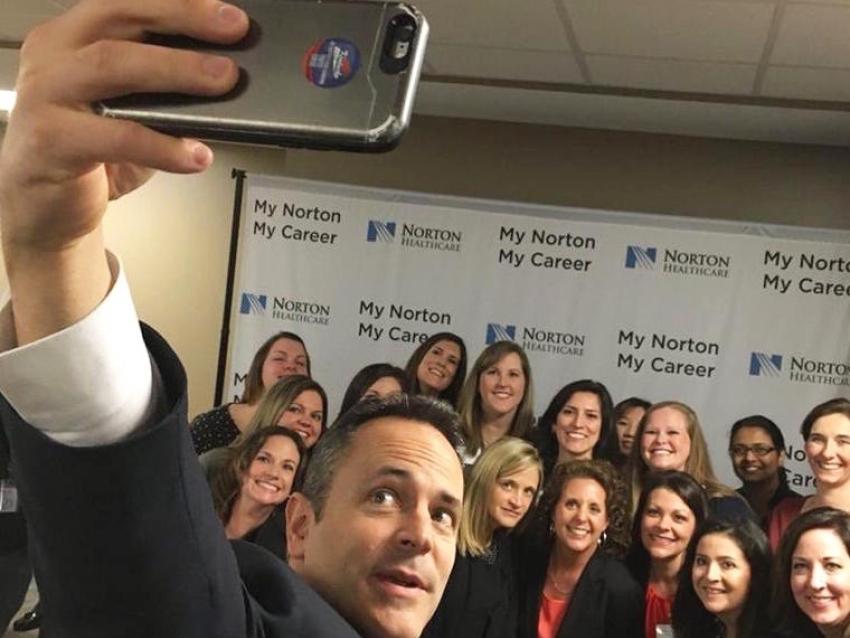
Norton Healthcare, University of Kentucky BSN-DNP Students Present to Kentucky Governor
By Baylee Pulliam
Dana Cook Pearson is a manager, but she won't be satisfied until she's at least a director.
"What got me here was experience," said Pearson, who works as a health information manager for Norton Healthcare Inc. "But what would take me forward is education."
She just finished a two-year degree and certification program through Kaplan University, an online college, and she plans to complete another. Louisville-based Norton Healthcare paid her way — part of the company's effort to improve and retain its 13,000-employee workforce through education.
The system showcased the results of that effort on Thursday, in a media event that featured Kentucky Gov. Matt Bevin, several top Norton executives, and employees who had used the system's educational programs. The event was held at Norton Orthopedic and Hand Center in Old Brownsboro Crossing.
The programs are the result of a workforce development timeline Norton created in 2000. That led the system to create scholarship programs for new workers and existing workers who wanted to earn higher credentials.
Another effort was launched in 2013, when the system issued a request for proposals, seeking a college to create a partnership that would allow Norton nurses with a bachelor's degree to earn a doctor of nursing practice degree while remaining employed.
Norton partnered with the University of Kentucky. The program's first class graduates in December, and many students were in attendance Thursday, showing off their final projects for a health policy course.
Bevin reviewed their projects, warning that he's "a tough grader," and posed for a selfie with the group.
In the healthcare industry as a whole, there's a shortage of qualified workers, noted chief human resources officer Tony Bohn.
For example, "we couldn't find nurses, so we're growing our own," he said. "We're investing in people in the classroom — we're putting nurses in the seats," with nursing-specific training and educational programs, which have cost the system about $21.4 million in the last decade.
The system also has tuition-reimbursement programs for soon-to-be nurses, which Bohn said help Norton recruit well-trained new hires. About 300 nurses who will graduate in May have committed to the company.
About 72 percent of the system's nurses have a bachelor's degree or higher.
Encouraging healthcare workers to attain a higher level of education leads to better patient outcomes and improves workforce retention, said Norton chief nursing officer Tracy E. Williams, who holds a doctor of nursing practice degree.
Her analysis shows that Norton nurses who received tuition scholarships from the organization have a lower one-year turnover rate.
Find the original story here.
